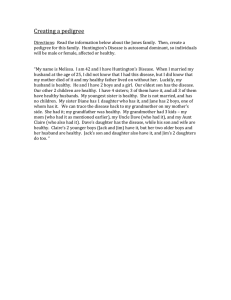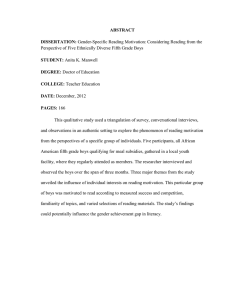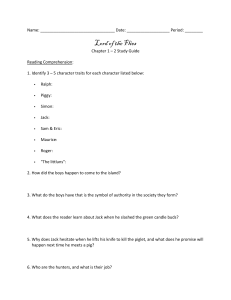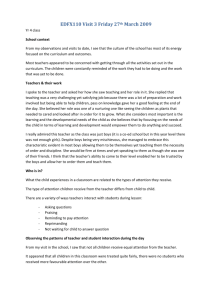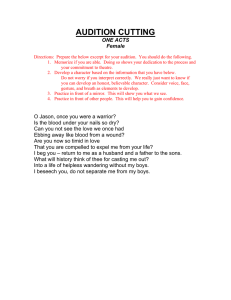Others crowded in, congratulating us on our three
advertisement
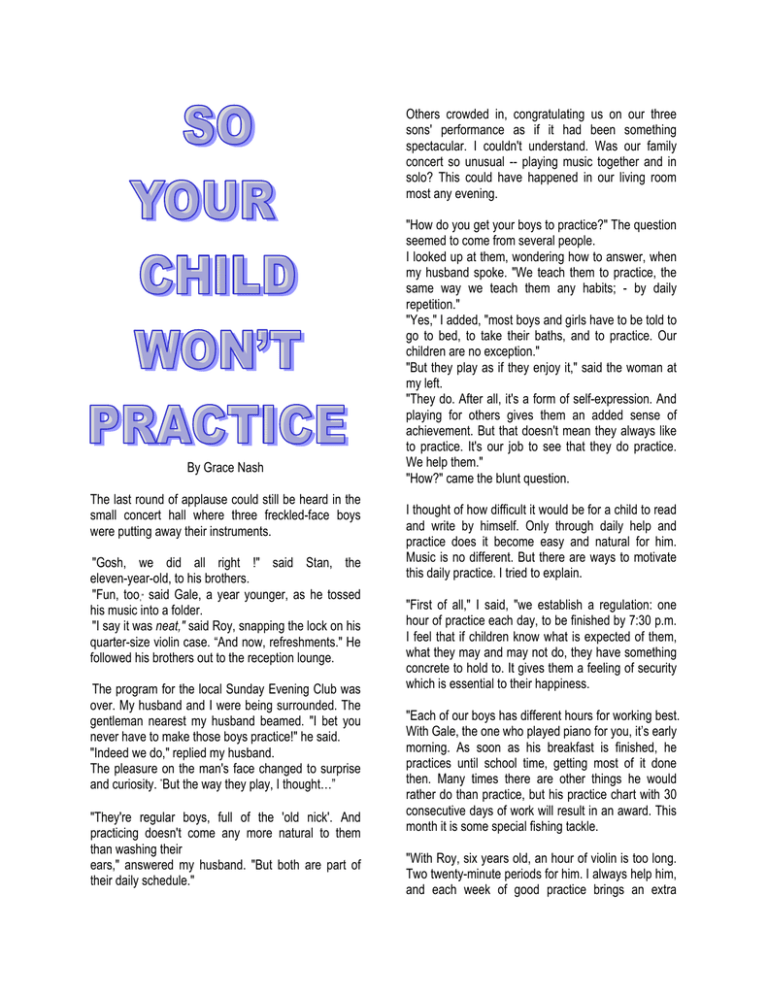
Others crowded in, congratulating us on our three sons' performance as if it had been something spectacular. I couldn't understand. Was our family concert so unusual -- playing music together and in solo? This could have happened in our living room most any evening. By Grace Nash The last round of applause could still be heard in the small concert hall where three freckled-face boys were putting away their instruments. "Gosh, we did all right !" said Stan, the eleven-year-old, to his brothers. "Fun, too,” said Gale, a year younger, as he tossed his music into a folder. "I say it was neat," said Roy, snapping the lock on his quarter-size violin case. “And now, refreshments." He followed his brothers out to the reception lounge. The program for the local Sunday Evening Club was over. My husband and I were being surrounded. The gentleman nearest my husband beamed. "I bet you never have to make those boys practice!" he said. "Indeed we do," replied my husband. The pleasure on the man's face changed to surprise and curiosity. “But the way they play, I thought…” "They're regular boys, full of the 'old nick'. And practicing doesn't come any more natural to them than washing their ears," answered my husband. "But both are part of their daily schedule." "How do you get your boys to practice?" The question seemed to come from several people. I looked up at them, wondering how to answer, when my husband spoke. "We teach them to practice, the same way we teach them any habits; - by daily repetition." "Yes," I added, "most boys and girls have to be told to go to bed, to take their baths, and to practice. Our children are no exception." "But they play as if they enjoy it," said the woman at my left. "They do. After all, it's a form of self-expression. And playing for others gives them an added sense of achievement. But that doesn't mean they always like to practice. It's our job to see that they do practice. We help them." "How?" came the blunt question. I thought of how difficult it would be for a child to read and write by himself. Only through daily help and practice does it become easy and natural for him. Music is no different. But there are ways to motivate this daily practice. I tried to explain. "First of all," I said, "we establish a regulation: one hour of practice each day, to be finished by 7:30 p.m. I feel that if children know what is expected of them, what they may and may not do, they have something concrete to hold to. It gives them a feeling of security which is essential to their happiness. "Each of our boys has different hours for working best. With Gale, the one who played piano for you, it’s early morning. As soon as his breakfast is finished, he practices until school time, getting most of it done then. Many times there are other things he would rather do than practice, but his practice chart with 30 consecutive days of work will result in an award. This month it is some special fishing tackle. "With Roy, six years old, an hour of violin is too long. Two twenty-minute periods for him. I always help him, and each week of good practice brings an extra privilege - an afternoon picnic, a trip to the zoo, or a new ball. "Stan, eleven years old, has many after-school sports. He practices best after dinner. Radio and television programs come only after his hour is finished. A composition well-mastered merits a Saturday movie, hamburgers for the gang, or a new baseball bat. "If their Saturday practice is finished before noon, fifty minutes instead of the usual sixty is the rule. But failure to complete their practice may prevent a family outing, a trip to the beach, or a game of cards." ”Do they watch the clock while they practice?" came the question. We have no clock in the living room. They check the time when they start. And after fifteen or twenty minutes, they call out, 'what time is it Mom?' "If they waste time, I simply add an extra five minutes and tell them it has been added. After the first few weeks, it seldom happens." "But I thought children should never be forced to practice. It might kill their love for music," said a feminine voice in the group. "Let us look at it this way. Children are not mature in their judgment. We, as parents, must enforce what is right for them. If you review the early life of Haydn, Mozart, Beethoven and many others you will find their training was part of their daily schedule, and not because they chose it to be. Free choice, in most things, is not for children. Children Need to be Led “We know our boys are not genius material. They're normal, mischievous youngsters, full of energy and curiosity. And we want to give them as much preparation for a good and happy life as we can. This means not only opening the doors to the many experiences ahead, but taking them by the hand leading them. And one of these doors leads to the enjoyment of music. "Music, a language of the feelings, goes beyond the printed or spoken word. It holds no barrier of race, creed, or nationality. One of the finest forms of self-expression for all ages, music is relaxing, up-lifting, and always worthwhile. What better means of expression can we give our children? "But to teach children music requires patience and daily supervision. The latter is our job, as parents just as it's our job to enforce a reasonable bedtime whether they approve or not. Yet many parents indulge in the belief that it is wrong to hold a child to a daily practice period. If he wants music, he must do his practicing on his own. Is it because they, as parents, are content to take the path of least resistance? "Let's look at it objectively. In a recent survey of our penal institutions, it was found that only a scattered few among the thousands of criminals had ever received any regular musical instruction or participated in an orchestra or chorus during their childhood. Music and deliquency seldom mix.” To make the daily practice period more enjoyable and worthwhile to both pupils and parents, here are some suggestions based on the seven notes of the musical alphabet: Assist your child with his practicing. Be generous with your interest an encouragement. Credit each achievement with some form of recognition. Develop the habit of daily practice Encourage note reading when the child is ready. Facilitate your child's listening to fine recordings by having the cassette player or phonograph conveniently located. Gain motivation by using appropriate psychology and activities as suggested by your teacher. It may take all seven keys to unlock your practicing problem. Music is one thing your child will never thank you for not giving him. Suzuki World Grace Nash, of Scottsdale, AZ, first wrote this popular article for Etude magazine in the early fifties. Since then, it has been chosen to be reprinted by other publications related to the music world. Ms. Nash is a popular national clinician on topics dealing with early childhood development and music.
